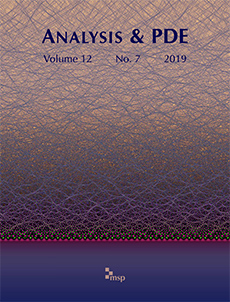Abstract
The zero sets of harmonic polynomials play a crucial role in the study of the free boundary regularity problem for harmonic measure. In order to understand the fine structure of these free boundaries, a detailed study of the singular points of these zero sets is required. In this paper we study how “degree- points” sit inside zero sets of harmonic polynomials in of degree (for all and ) and inside sets that admit arbitrarily good local approximations by zero sets of harmonic polynomials. We obtain a general structure theorem for the latter type of sets, including sharp Hausdorff and Minkowski dimension estimates on the singular set of degree- points () without proving uniqueness of blowups or aid of PDE methods such as monotonicity formulas. In addition, we show that in the presence of a certain topological separation condition, the sharp dimension estimates improve and depend on the parity of . An application is given to the two-phase free boundary regularity problem for harmonic measure below the continuous threshold introduced by Kenig and Toro.
Citation
Matthew Badger. Max Engelstein. Tatiana Toro. "Structure of sets which are well approximated by zero sets of harmonic polynomials." Anal. PDE 10 (6) 1455 - 1495, 2017. https://doi.org/10.2140/apde.2017.10.1455
Information





